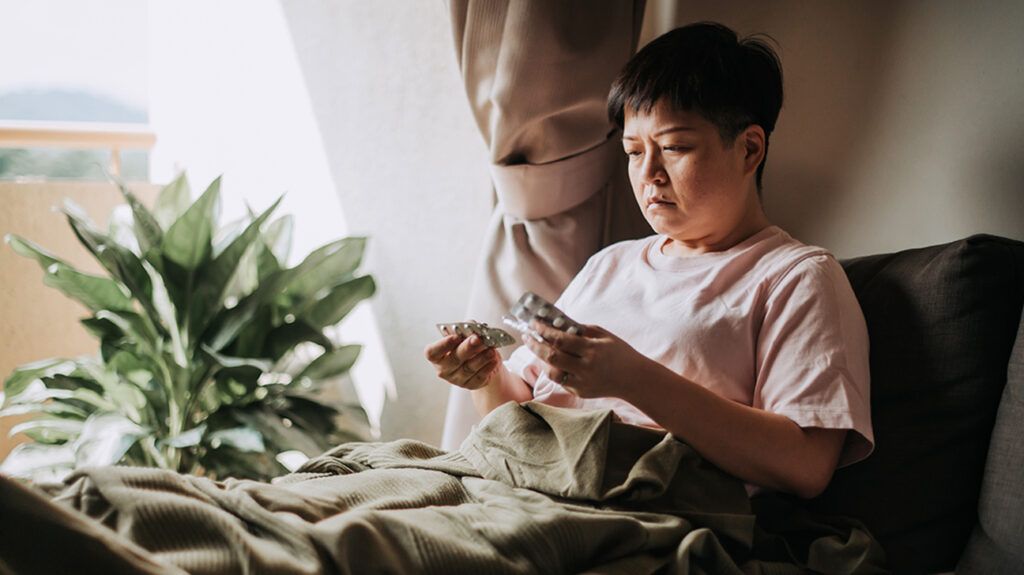Medications to treat anxiety need a prescription because these drugs, such as antidepressants, can produce some side effects that medical professionals must carefully monitor. But some OTC medications may help address some anxiety symptoms.
OTC anxiety medications

According to the World Health Organization (WHO), anxiety is one of the world’s most common mental health conditions, with 301 million people living with the condition as of 2019. Of these, 58 million are children and adolescents.
Anxiety medications are typically prescription only, but some OTC products can address particular anxiety symptoms, such as mood changes, stress, and sleep difficulties.
Below, we look at some OTC medications that address some anxiety symptoms.
5-Hydroxytryptophan
5-Hydroxytryptophan (5-HTP) is a drug and supplement that helps increase serotonin levels. Serotonin is a chemical that helps regulate mood. Low serotonin levels link to mental health conditions such as anxiety and depression.
If you have anxiety, you may experience mood changes. Some people take 5-HTP supplements, made from the seeds of the Griffonia simplicifolia plant, to regulate their moods.
However, a 2021 study found that while 5-HTP showed a moderate reduction in anxiety symptoms, the supplement could also aggravate anxiety as a side effect.
Talk with a doctor or healthcare professional if you’re considering taking 5-HTP to address some of your anxiety symptoms.
Antihistamines
Diphenhydramine (Benadryl) is common in treating allergies, but as an antihistamine, it has sedative effects that can serve as a sleep aid. People with anxiety may take diphenhydramine to manage sleep difficulties. It is known as off-label use when people use antihistamines in this way.
Off-label means that while some people use diphenhydramine for anxiety symptoms, the Food and Drug Administration (FDA) does not approve it for this condition, as some people may experience worsening symptoms with this drug.
A 2017 study also found that diphenhydramine wasn’t as effective in promoting calmness as other medications.
Learn more about the connection between Benadryl and anxiety.
The only antihistamine that’s FDA approved to treat anxiety is hydroxyzine (Vistaril, Atarax), which is a prescription-only medication. However, an older 2014 study found that hydroxyzine negatively affected mood.
Be sure to speak with your doctor if you’re thinking of taking antihistamines to manage anxiety.
Inositol
Inositol is a type of sugar that can help regulate dopamine and serotonin levels.
Inositol supplements may help decrease anxiety symptoms, such as shortness of breath, dizziness, and tingling sensations.
However, more research is necessary to confirm the effects of inositol on anxiety.
CBD
Cannabidiol (CBD) is a compound of the Cannabis sativa plant.
Legally, OTC CBD products must contain less than 0.3% dry-weight tetrahydrocannabinol (THC).
THC is the plant’s psychoactive compound responsible for the “high” feeling people can experience with cannabis use. OTC CBD products do not have this effect.
A 2020 review found that CBD could be effective in managing the symptoms of anxiety-related disorders. However, the FDA does not approve the use of CBD products for anxiety and does not regulate CBD products in the same way as prescription medications.
Learn more about CBD for anxiety.
If you need help covering the cost of medications, the free Optum Perks Discount Card could help you save up to 80% on prescription drugs. Follow the links on drug names for savings on that medication, or search for a specific drug here.
